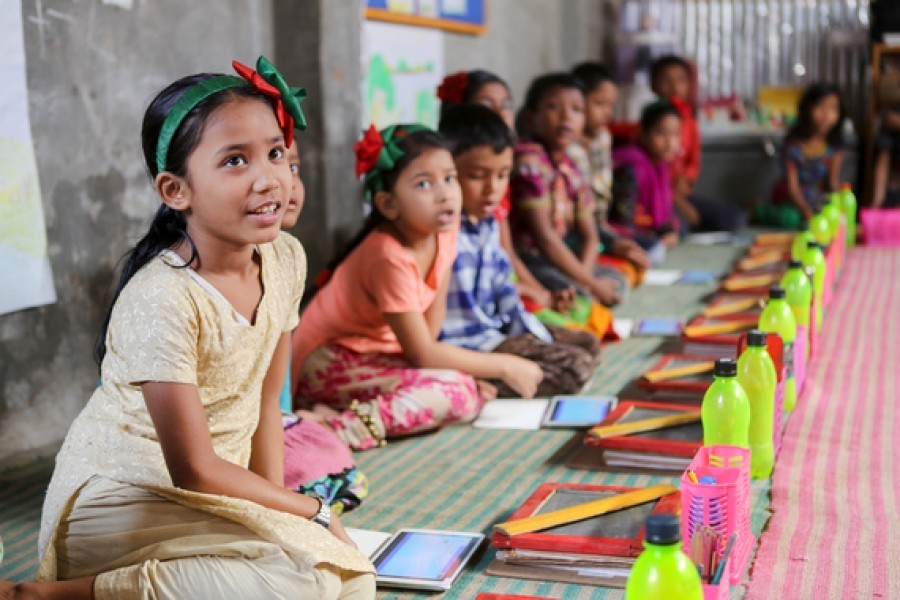
Published :
Updated :

Children have now spoken out in favour of more government spending to address their most vital needs like education and healthcare. Children's view about issues as serious as what the government's priorities should be regarding its allocation in the national budget for their education, healthcare and other related issues is indeed amazing. And it was thanks to a survey conducted by Unicef, the UN agency to provide humanitarian and developmental aid to children worldwide, on a sample of some 14,000 children that their views came out. As reported in the Tuesday's issue of this paper, 85 per cent of the children so interviewed expressed their concern about the learning loss they suffered due to the 18 months' school closure during the pandemic. And to overcome the loss, they viewed, the government needs to invest more in building the capacity of their teachers through training and further education.
Traditionally, it was thought that it is the responsibility of the elders, the guardians of the children, to think about their needs and the means to address those. For the general perception about children was that they are too inexperienced to hold any view about what the adults should or should not do about their wellbeing. But the outcome of the Unicef's study done by way of getting the children's response to various issues of general interest through its (Unicef's) online platform, Generation Parliament, should change such perception. The fact that the children under study could not only give vent to their hopes and aspirations, but also make comments on weightier issues like investment in and budgetary allocations for education and health is a wakeup call for the policymakers in the government. It is that children have their say about the decisions the government make about their future and that it has to be listened to. Unsurprisingly, pledging to champion children's cause, the Chair of the Parliamentary Caucus on Child Rights stressed that the national leaders need to engage more with children in the matter of policies affecting their lives.
Granted that today's children are wiser and that they know a thing or two about their welfare, it is still the elders who have to work in the field to address their concerns. But have the issues such as the children's pandemic-induced learning loss as pointed out by them in the Unicef's study received the attention they deserve, say, in the proposed budget for the next financial year FY (2022-23)? For to recover the loss suffered by millions of students, it was expected that the proposed budget would make adequate provision for the education sector.
But the allocation for education has actually been reduced if measured in terms of its share in the country's Gross Domestic Product (GDP). For it is 1.83 per cent of the GDP in the proposed FY23's budget, whereas it was 2.08 per cent in the current budget (FY2021-22). So, the question remains as to how the government is going to address the huge challenge of overcoming the learning loss suffered by, according to a study, eight million schoolchildren in the country during the pandemic or of building the schoolteachers' capacity to meet the requirements of the new curriculum with practically no remarkable improvement in the budgetary allocations for the purpose. In the circumstances, the government would do well to take due note of the children's concerns as expressed through the Unicef's study and address those through effecting changes in its policies including in the national budget as necessary.


 For all latest news, follow The Financial Express Google News channel.
For all latest news, follow The Financial Express Google News channel.